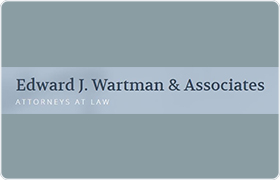Merrillville Bankruptcy & Debt Lawyer, Indiana
Sponsored Law Firm
-
 x
x

Click For More Info:
-
Edward J. Wartman & Associates
516 East 86th Avenue Merrillville, IN 46410» view mapBankruptcy & Debt Law Highest Quality of Legal Services
At Edward J. Wartman & Associates Our experience runs deep and our successes are numerous, yet our motivation is simple.
219-791-1520
Edward John Wartman
✓ VERIFIEDAccident & Injury, Bankruptcy & Debt, Criminal, Divorce & Family Law, Traffic
Ed was born and raised in Calumet City, Illinois graduating from Quigley South High School in Chicago in 1988. He graduated from Northwestern Univers... (more)
FREE CONSULTATION
CONTACTNicole A. Bennett
Banking & Finance, Corporate, Collection, Constitutional Law
Status: In Good Standing
Adam D. Decker
Business Successions, Collection, Commercial Bankruptcy, Bankruptcy & Debt
Status: In Good Standing
FREE CONSULTATION
CONTACTFREE CONSULTATION
CONTACTChristopher Schmidgall
Bankruptcy & Debt, Criminal, Traffic, DUI-DWI
FREE CONSULTATION
CONTACTShauna Lange
Administrative Law, Bankruptcy, Medical Malpractice, Pension & Benefits
Status: In Good Standing
Shawn Douglas Cox
Litigation, Electronic Commerce, Health Care Other, Bankruptcy
Status: In Good Standing
 Edward Wartman Merrillville, IN
Edward Wartman Merrillville, IN

